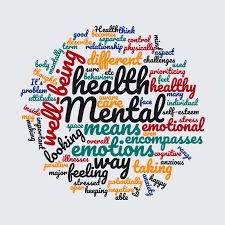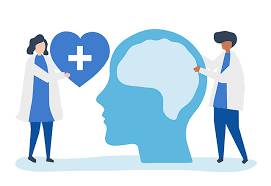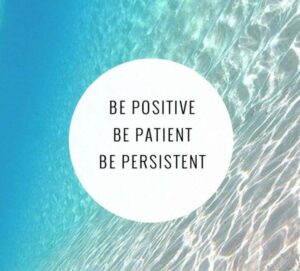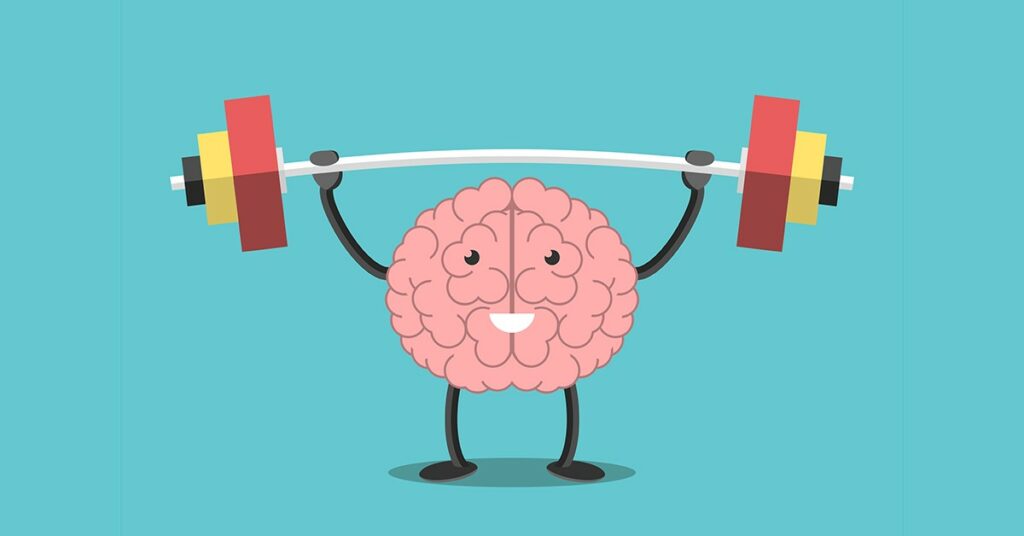Mental health is something that is often ignored or brushed under the rug. However, it is a very important topic that should not be ignored. According to the National Alliance on Mental Illness, one in five adults in the United States experiences mental illness in a given year. That’s a lot of people! In this comprehensive guide, we will discuss different types of mental illnesses, symptoms, treatment options, and more. We hope that this information will help you or someone you know who is struggling with mental health issues.
Contents
What Does Mental Health Mean?
 Mental health includes our emotional, psychological, and social well-being. It affects how we think, feel, and act. It also helps determine how we handle stress, relate to others, and make choices. In a literal sense, mental health defines how healthy our mind is.
Mental health includes our emotional, psychological, and social well-being. It affects how we think, feel, and act. It also helps determine how we handle stress, relate to others, and make choices. In a literal sense, mental health defines how healthy our mind is.
Good mental health isn’t just the absence of mental health problems. Being mentally or emotionally healthy means:
- Coping with stress and adversity in a productive way.
- Maintaining satisfying relationships.
- Leading a meaningful and fulfilling life.
- Continuing to grow and learn throughout life
If you have good mental health, you’re likely to feel good about yourself and those around you. You’ll be able to function well on a day-to-day basis and when faced with challenges. So in every possible way, it is important to take care of your mental health.
Importance Of Mental Health
In life, it is the essential thing after physical health. Mental health is often neglected and not given enough importance as it should be. It is high time that people should start paying more attention to their mental well-being just like they do to physical fitness. It plays various roles in our lives, be it at work, home, or school.
For instance, at work, if an employee is going through a tough time mentally, it will show in their work performance. In school, students are more likely to get lower grades. Similarly, at home, it can take a toll on the whole family.
Numerous benefits are associated with mental health, such as;
- It helps in improving work performance.
- Good mental health leads to better grades in school.
- It strengthens the bond within a family.
- Helps in maintaining physical health.
- Reduces stress and anxiety levels.
- Improves efficiency and productivity.
So, it is evident that mental health is just as important as physical health. It requires the same attention as much as physical health does. It is high time people started taking their mental well-being seriously and making an effort to improve it.
Mental health should, therefore, never be ignored or taken for granted. It is essential to take care of your mental well-being in order to lead a completely healthy life.
What Are The Types Of Mental Illnesses?
 When we talk about mental illness, we are referring to a broad range of mental health conditions. Mental illnesses can affect how a person thinks, feels, and behaves. They can also lead to physical or emotional problems.
When we talk about mental illness, we are referring to a broad range of mental health conditions. Mental illnesses can affect how a person thinks, feels, and behaves. They can also lead to physical or emotional problems.
Types Of Mental Illnesses
Anxiety disorders
Anxiety disorders are the most common type of mental illness. They can cause a person to feel nervous, anxious, or scared. Some of the most common anxiety disorders include:
- Generalized anxiety disorder (GAD)
- Panic disorder
- Social anxiety disorder
- Agoraphobia
- Specific phobias
Mood disorders
Mood disorders are another type of mental illness. They can cause a person to feel sad, hopeless, or angry. Some of the most common mood disorders include:
Psychotic disorders
Psychotic disorders are a type of mental illness. It is characterized by a person losing touch with reality. Some of the most common psychotic disorders include:
- Schizophrenia
- Delusional disorder
- Substance-induced psychosis
Eating disorders
Eating disorders are a type of mental illness that can cause a person to change their eating habits. Some of the most common eating disorders include:
Personality disorders
Personality disorders are a type of mental illness. They can cause a person to have difficulty with relationships and work. Some of the most common personality disorders include:
- Borderline personality disorder (BPD)
- Narcissistic personality disorder (NPD)
- Antisocial personality disorder (ASPD)
These all are types of mental illnesses that can be diagnosed by a mental health professional. Also, it is important to get help for mental health and to talk to somebody about what you are going through.
Warning Signs To Get Help For Mental Health
 There are many warning signs of mental illness. And every disorder has its own unique set of symptoms. But there are some general warning signs that can help you identify when it’s time to get help.
There are many warning signs of mental illness. And every disorder has its own unique set of symptoms. But there are some general warning signs that can help you identify when it’s time to get help.
Here are some warning signs to get help for mental health:
- Changes in mood or behavior.
- Withdrawing from friends or activities.
- Sleeping too much or too little.
- Eating too much or too little.
- Losing interest in things you used to enjoy.
- Feeling hopeless, worthless, or helpless.
These signs are very common among people with mental illness. If you or someone you know is experiencing these symptoms, it’s important to get help. There are many resources available to help you get the treatment you need.
In fact, getting help is the first step to recovery. Treatment can help you manage your symptoms and live a healthy, productive life. If you or someone you know is struggling with mental health, don’t hesitate to reach out for help.
How Does Diagnosis Help For Mental Health?
Diagnosis can give you a sense of relief. Once you know what is wrong, you can start to understand why you feel the way that you do. This can help lessen your anxiety and stress about not knowing what is causing your symptoms.
It can also help point to specific treatments that may work for you. In some cases, having a diagnosis can make it easier to get a disability. Or other types of assistance from the government or social services organizations. A diagnosis can also help your family and friends understand what you’re going through and how they can best support you.
Ways to diagnose in order to get help for mental health
Professionals use different ways to diagnose mental illness. Such ways are;
- Asking questions about your symptoms and medical history.
- Observing your behavior.
- Using psychological tests.
- Conducting a physical exam.
These are the ways that help professionals understand what is causing your symptoms and make a diagnosis. Depending on your symptoms, the professional may also want to rule out physical illnesses that can cause similar symptoms.
How To Get Help For Mental Health?
 There are various ways that you can get help for mental health. Here are 11 ways that you can get help for mental health. These ways are not exhaustive, but they are a starting point.
There are various ways that you can get help for mental health. Here are 11 ways that you can get help for mental health. These ways are not exhaustive, but they are a starting point.
11 Steps to get help for mental health
These can be done in any order that you feel comfortable with.
Educate yourself about mental health
It is the first and most important step to take when it comes to your mental health. Read books, talk to people who have gone through similar experiences, look up articles online, and do whatever you can to learn more about mental health. The more you know about mental health, the better equipped you will be to deal with any challenges that come your way.
Talk to someone who understands
Whether it is a friend, family member, therapist, or hotline operator, talking to someone who understands what you are going through can be incredibly helpful. These people can provide support, understanding, and guidance when you need it the most.
In fact, it can be helpful to have a few people in your life who you can rely on for support. If you have someone who understands you, then you can easily share your feelings. That being said, make sure that you find someone you can trust and who will not judge you.
Create (or join) a support group
Support groups are a great way to meet other people who are dealing with similar issues. These groups provide a safe space to share your experiences, vent your frustrations, and receive support from others.
You can usually find support groups through mental health organizations, hospitals, or community centers.
Take care of your body as a whole
 It might seem unrelated, but taking care of your physical health is crucial for maintaining good mental health. Because everything is interrelated and interconnected when one part of you is not functioning properly. Then, surely it can have a negative impact on other areas of your life.
It might seem unrelated, but taking care of your physical health is crucial for maintaining good mental health. Because everything is interrelated and interconnected when one part of you is not functioning properly. Then, surely it can have a negative impact on other areas of your life.
- Make sure to eat healthy foods,
- get enough exercise,
- and get enough sleep.
These are all important for keeping your mind and body healthy. It is also important to find ways to relax and reduce stress.
Identify your triggers
What are the things that trigger your mental health problems? Once you know what these triggers are, you can start to avoid them or at least be prepared for them. It is essential to be aware of your triggers so that you can manage your mental health more effectively. These triggers could be;
- Certain people with whom you might not comfortable.
- It could be placed, like a hospital or doctor’s office, that reminds you of bad experiences.
- It could be a time of year, like the holidays, that is particularly stressful.
- By certain events, like getting fired from a job or going through a divorce.
- Certain things that you see, hear or smell.
Surround yourself with positive people
It is important to surround yourself with positive people who will support you and make you feel good about yourself. These people should be in your life to help you, not to make you feel worse. Positive people will help you to see the good in yourself and in the world around you. These people could be friends, family members, or even a therapist.
Set realistic goals
When you are dealing with mental health issues, it is important to set realistic goals. This way, you can avoid becoming overwhelmed and stressed out. If you set goals that are too high, then you will only end up disappointed in yourself. However, if you set goals that are achievable, then you will be more likely to achieve them and feel good about yourself in the process.
Make sure to break down your goals into small and manageable pieces. This way, you can focus on one thing at a time and not become overwhelmed. Some examples of realistic goals are;
- Going to see a therapist once a week.
- Eating three healthy meals each day.
- Exercising for 30 minutes each day.
- Spending time with positive people each day.
Prioritize self-care
Self-care is any activity that you do deliberately in order to take care of yourself. This could be something as simple as taking a break when you are feeling overwhelmed or taking time for yourself each day to do something that you enjoy.
Self-care is important because it helps you to relax and recharge. When you are taking care of yourself, you are more likely to have the energy and motivation to take care of other aspects of your life. Make sure to find time for self-care each day, even if it is just for a few minutes. You deserve it!
Challenge your negative thoughts
It is common for people with mental health issues to have negative and distorted thoughts. These thoughts can be very harmful and make it difficult to cope with everyday life.
Fortunately, there are ways to challenge these negative thoughts. By doing this, you can start to see things in a more positive light. One way to challenge your negative thoughts is to ask yourself questions such as;
- Is there evidence that supports this thought?
- Is this thought helping or hurting me?
- What would a friend say about this thought?
- Could I look at this situation in a different way?
Try to remember that just because you have a negative thought does not mean that it is true. You have the power to choose what you believe, so choose something positive!
Seek professional help
If you are struggling to cope with your mental health issues, it is important to seek professional help. A therapist can provide you with support and guidance as you work through your problems.
Therapy can be very helpful in managing mental health issues. If you are interested in finding a therapist, do look at TherapyMantra for more information.
TherapyMantra is committed to helping people with their mental health. If you or someone you know is struggling, please reach out for help for mental health.
Be patient and positive
 When you are working on your mental health, it is important to be patient and positive. Change takes time, so don’t expect to see results overnight. Just keep working towards your goals and believe in yourself. You can do it!
When you are working on your mental health, it is important to be patient and positive. Change takes time, so don’t expect to see results overnight. Just keep working towards your goals and believe in yourself. You can do it!
Everyone needs help for mental health at some point in their lives. Whether you are struggling with anxiety, depression, or other issues, there is help available. Use the tips in this guide to get started on your journey to recovery. Remember, be patient and positive!
Conclusion
To conclude, getting help for your mental health is vital to living a happy and healthy life. Don’t be afraid to ask for help, whether it’s from a friend, family member, therapist, or doctor. Remember that you are not alone in this battle. Millions of people suffer from mental illness, but with the proper treatment, they can lead fulfilling lives.
If you are struggling with mental health issues, there are plenty of resources available to help you get the treatment you need. Seek out help and start living the life you deserve. This comprehensive guide should have given you some idea about where to start when it comes to seeking help for mental health. Thanks for reading!
A Word From Therapy Mantra
Your mental health — Your psychological, emotional, and social well-being — has an impact on every aspect of your life. Positive mental health essentially allows you to effectively deal with life’s everyday challenges.
At TherapyMantra, we have a team of therapists who provide affordable online therapy to assist you with issues such as depression, anxiety, stress, workplace Issues, addiction, relationship, OCD, LGBTQ, and PTSD. You can book a free therapy or download our free Android or iOS app.


